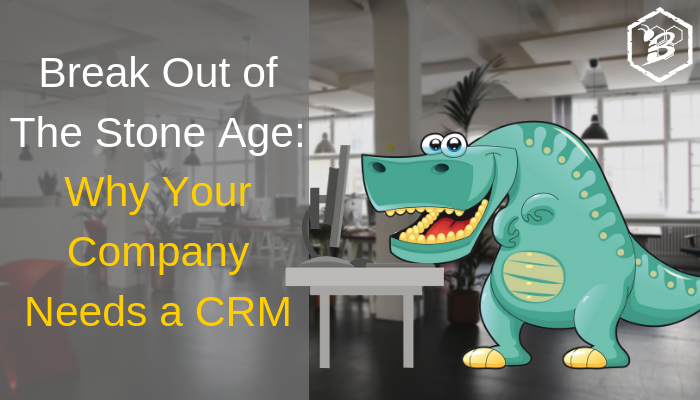The way in which we conduct business is changing on an almost daily basis. Business isn't closed by dropping off some bagels and business cards anymore. Keeping track of your clients in a spreadsheet is so archaic, the last time I did that, I fell off my dinosaur. But seriously, every single prospect, every lead, and every customer has a variety of needs.
Now if you work for a large-enterprise organization, you're most likely using a CRM and understand the value it brings to your business.
If you don't see the value, then there's a good chance you're using the wrong CRM.
If you work at a start-up, small, or mid size business, there's a possibility you aren't using a CRM, and that in itself may be the biggest hindrance for your company's growth.
Before we get too far though, let's make sure we all know what a CRM is. CRM stands for Customer Relationship Management, and is a software tool used to track all facets of your relationship with each individual prospect, lead, and customer.
When you think of the single most important part of your business, many people think internally.
We have a great product.
Our customer service is world class.
We have an amazing company culture.
Without a doubt, all of these are important pieces, however they are all meaningless without clients. Clients are the heartbeat of your organization, without clients nobody cares about your great product. Your culture doesn't exist if you have no customers to support. Now is the time time to take control of those relationships to the best of your ability.
If you're reading this and feeling overwhelmed, you may be wondering:
- How much will this cost?
- What kind of features should I be looking for?
- How do I choose the best one for my organization?
Well, fortunately there's an easy tool to help you with all of that - https://technologyadvice.com/crm
Ok, so by this point you probably understand that a CRM is important to nurture relationships with prospects, leads, and clients, but what other benefits can help you get the most out of a CRM? Well, here's a short list of benefits a CRM adds:
It's a Centralized Database for the Organization
Anyone within the organization will have the ability to see the life cycle of any prospect, lead, or client. Your CRM should track all communications, so within one click you'll be able to see all interaction and activity for this person or company. Whether a client is being passed to a new sales person, a new account manager, or a new person takes over a territory - this data will provide their entire story.
Pipeline Tracking
Sales forecasting is one of those mysteries that nobody has really perfected since the dawn of time. Even with a solid financial or analytics team, there are always small variables that may have a large impact on the business forecast. Your CRM should be able to track the progress of each prospective client and their prospective spend, starting from initial outreach to close.
Enhanced Sales Analytics
Any CRM should tell you the basics of your sales outreach such as:
- How many leads were added
- How many emails were sent
- How many calls were made, etc.
A more advanced CRM, I'll use HubSpot for example since that's what I use, will tell you things like:
- Every time a prospect opens an email
- Every time a prospect visits your website
- Which pages they look at, etc.
The CRM will then send a note or schedule a task to reach out because that prospect is engaging with my company.
Hopefully by this point you've come to the realization that you should look into adopting a CRM for your business. You have some information on what it can do, and a great tool to help you find the best option for you. So I urge you to get out there and take control of those relationships! If you're interested in learning more about HubSpot, our CRM, feel free to schedule a free demo with us below.



.png?width=100&height=100&name=HubSpot%20for%20K%E2%80%9312%20Education%20How%20Schools%20Use%20HubSpot%20to%20Improve%20Enrollment%20(and%20How%20to%20Set%20It%20Up).png)
.png?width=100&height=100&name=The%20Complete%20Guide%20to%20HubSpots%20Prospecting%20Agent%20(2025%20Edition).png)
